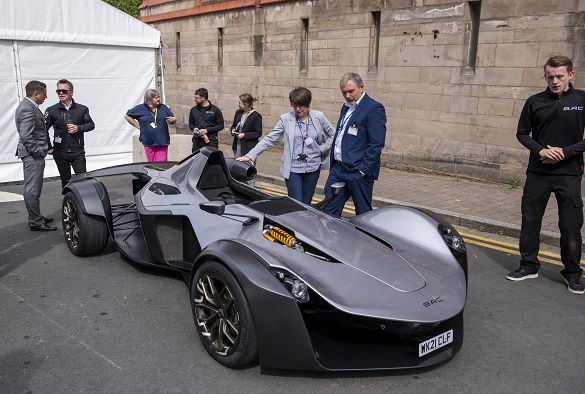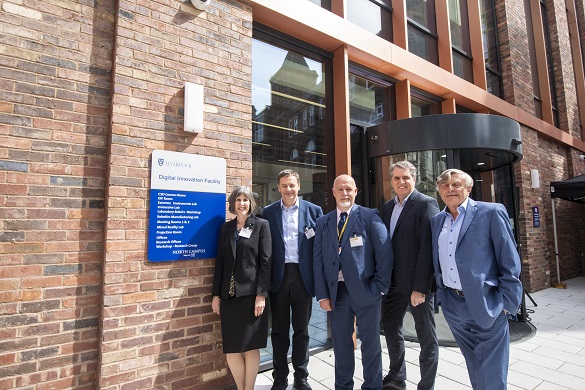
University of Liverpool offical opening of the Digital Innovation Facility
On Monday, 23 May, over 100 guests from the University, industry, funding bodies and national and regional stakeholders gathered to celebrate the official opening of the Digital Innovation Facility by the Liverpool City Mayor, Steve Rotheram and tech entrepreneur, University alumnus and Visiting Professor, Sir Robin Saxby.
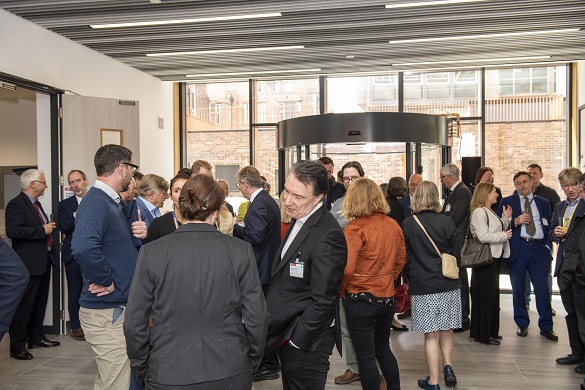
University of Liverpool offical opening of the Digital Innovation Facility
The Vice-Chancellor Professor Dame Janet Beer welcomed guests and spoke of how the facility will help business and industry access the University’s considerable expertise in the areas of computer science, robotics and engineering, which were all highly ranked in the recent Research Excellence Framework, resulting in further collaborations, inward investment and economic growth.
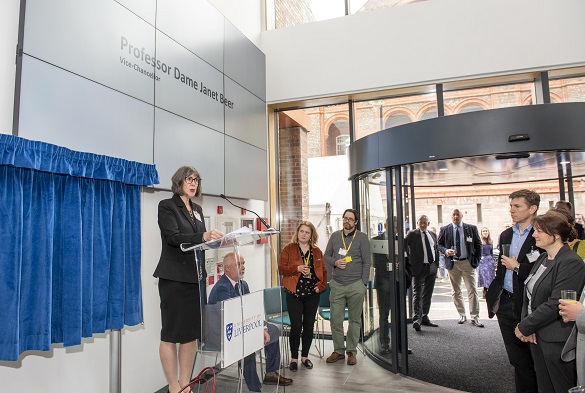
Sir Robin Saxby is a long term friend of the University and was delighted to be in Liverpool for the opening of the Digital Innovation Facility, which will play a key role in the region’s research and innovation capabilities facilitating industry and academic collaboration with huge potential and opportunities across many sectors including data analysis, AI, robotics, health care and climate change.
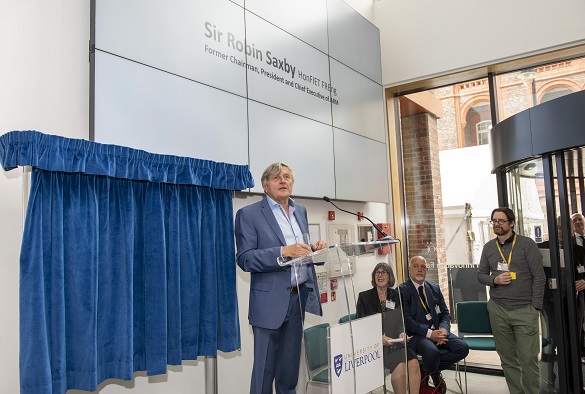
The DIF is co-funded by the Liverpool City Region Combined Authority’s Local Growth Fund, and Liverpool City Mayor Steve Rotheram said: “For me, it’s a no brainer for us to invest in projects that marry intelligent businesses with local research excellence and help develop this into practical and lucrative new applications.”
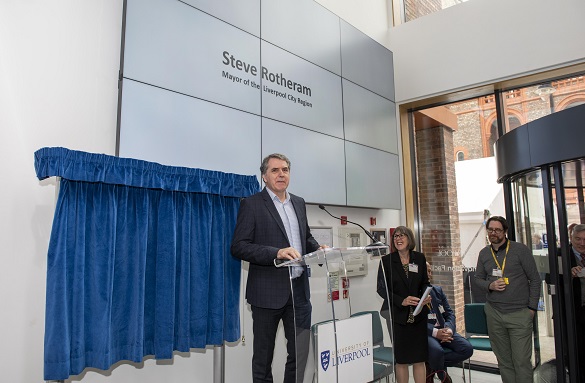
University of Liverpool offical opening of the Digital Innovation Facility
Professor Wiebe Van Der Hoek took the opportunity to thank those who had supported and contributed to the completion of the project, despite the many challenges presented by the pandemic. He had special words of thanks for Dr Andy Levers who had guided the project from day one.
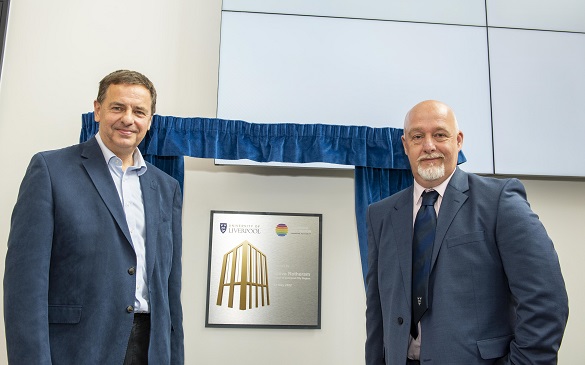
University of Liverpool offical opening of the Digital Innovation Facility
Guests had the opportunity to tour the six state of the art labs and find out about the different reserch areas that teams are working on.
The Extreme Environment Laboratory’ focuses on the design, manufacture, analysis and testing of highly automated or autonomous land-based and aerial robotic systems for use in real-world missions
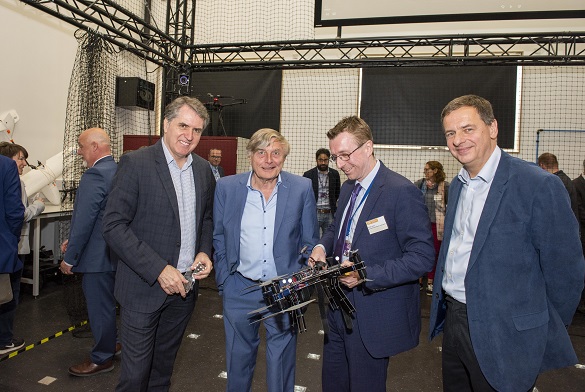
The Immersive Lab is investigating the sharing, synchronicity, and replication of sensory information, including smell, and guests had the opportunity to try the technology.
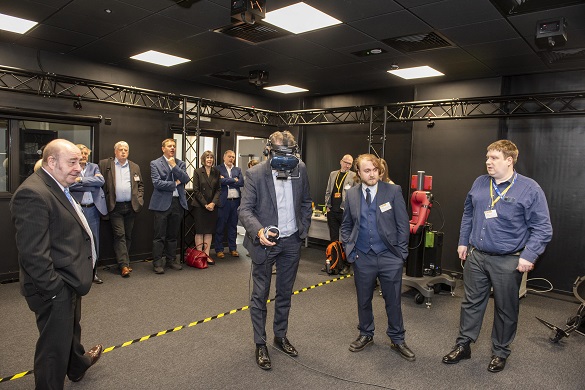
The Robotics Laboratory is creating the “Laboratory of the Future”, a self-driving, autonomous scientific laboratory powered by artificial intelligence and robotics.
`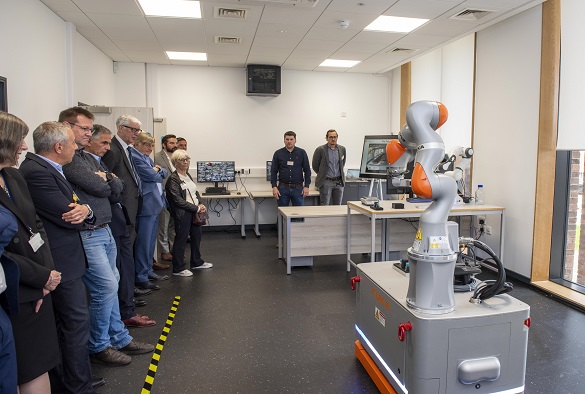
A Briggs Automotive Company (BAC) Ltd Mono car joined the celebrations. The University’s Virtual Engineering Centre (VEC) works with BAC providing ‘on-demand’ virtual engineering expertise.
